
[ad_1]
When Jonathan Slaght did his analysis on Blakiston’s Fish Owl in Russia’s Far East – which he describes in his wonderful guide “Owls of the Japanese Ice” – he needed to cope not solely with excessive chilly but in addition with relatively dangerous music:
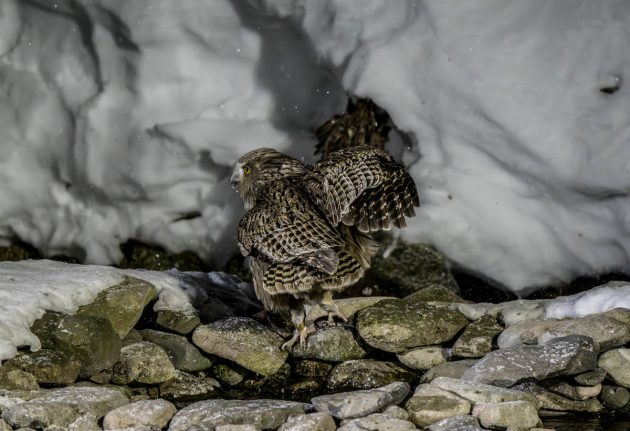
“Katkov crammed our commutes with loud music. He was significantly keen on a mixture tape of Russian songs dominated by wolf-related themes, which we listened to solely for the primary week. Ultimately, I bored with this and commenced to poke across the glove compartment for different choices, however there have been few. It turned out that growling, protracted howls, and lyrics like “You could assume I’m a canine, however actually I’m a wolf” grow to be tolerable when the alternate options are dance remixes of the Carpenters’ love ballads.”
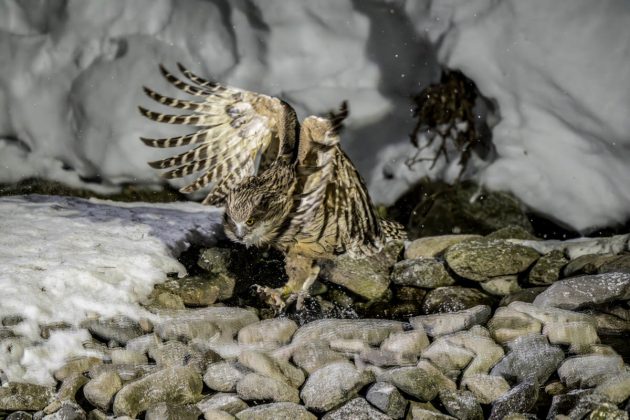
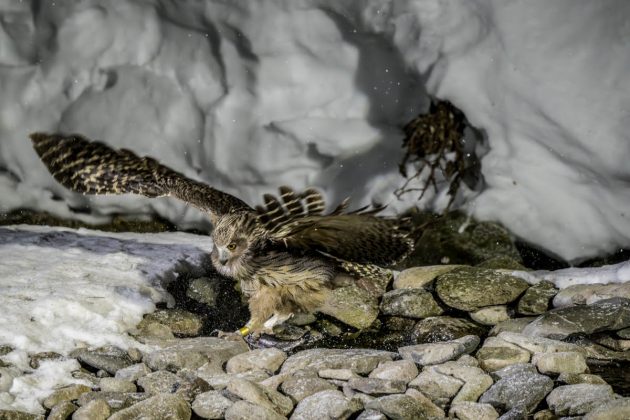
On Hokkaido, seeing a Blakiston’s Fish Owl is far simpler. Sitting in a heated(!) cover, one has to deal with the loud noise of older Chinese language photographers and the prospect of not seeing the fowl in any respect regardless of staying up all evening, however that’s about it.
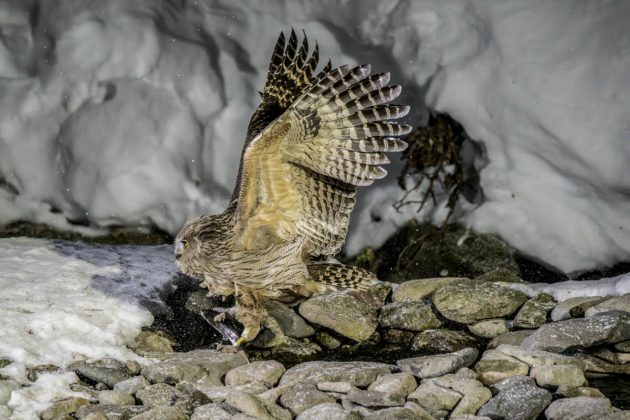
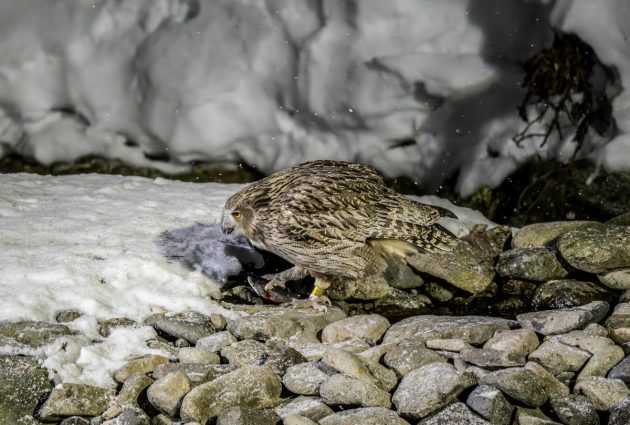
Articles about Blakiston’s Fish Owl usually begin by declaring that that is the most important owl alive – although the HBW provides this honor to the Eurasian Eagle Owl (“world’s heaviest owl”) after which instantly contradicts itself by giving a weight of 2280–4200 g for the feminine Eurasian and 3360–4600 g for the feminine Blakiston’s (in each species, the females are heavier than the males).
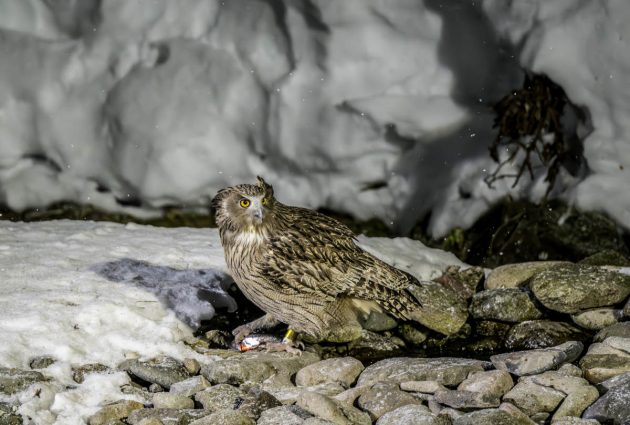
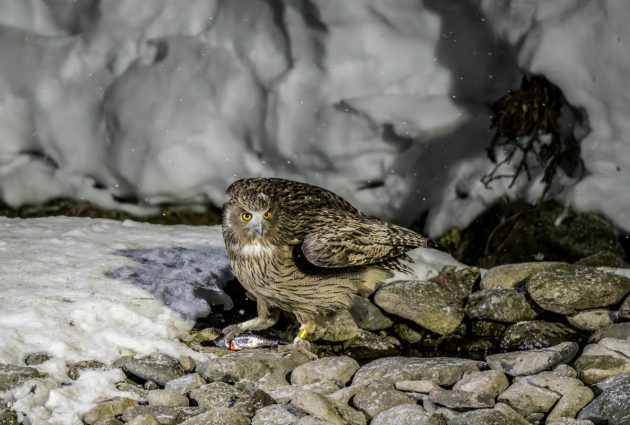
Blakiston’s Fish Owl is endangered – some estimates give a complete variety of fewer than 2500 mature people.
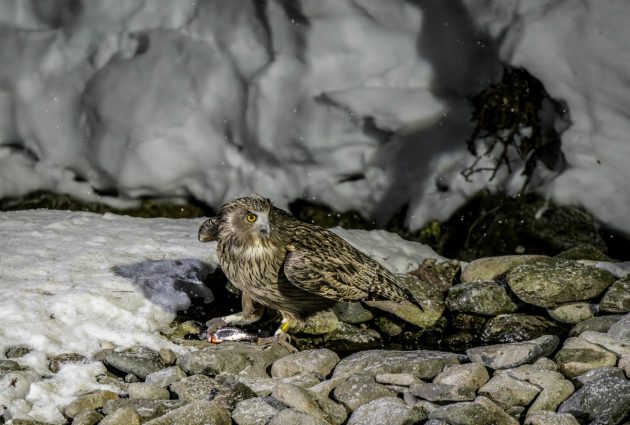
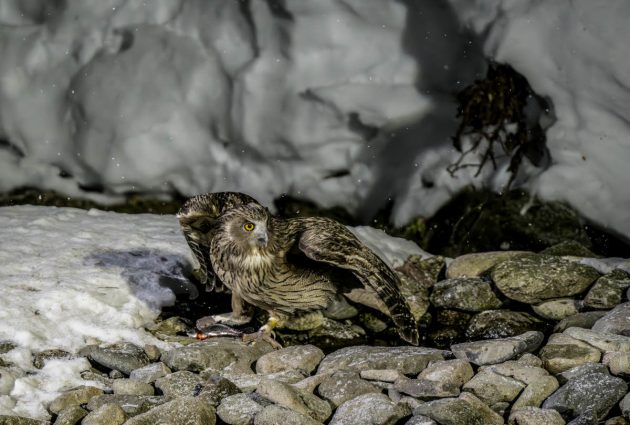
As if that wasn’t a sufficiently small quantity already, one paper suggests splitting the species primarily based on bioacoustic knowledge and creating the Northern Fish Owl.
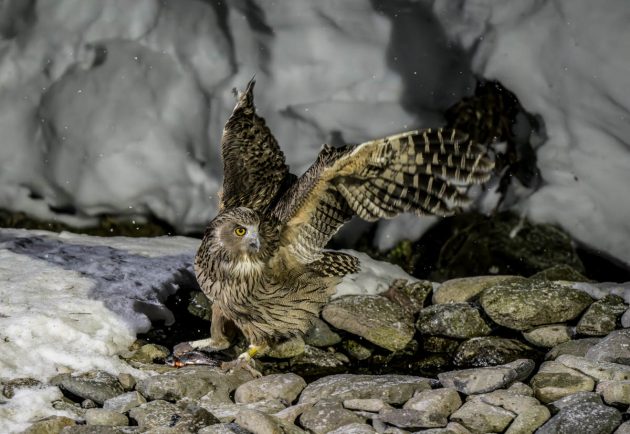
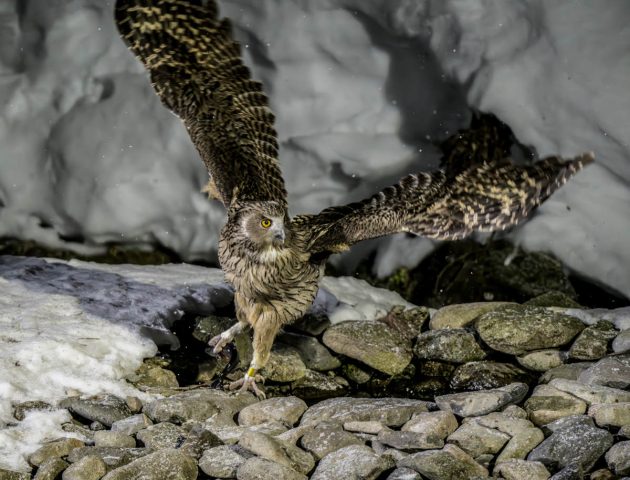
The owl can also be on the middle of conservation efforts, see right here for particulars.
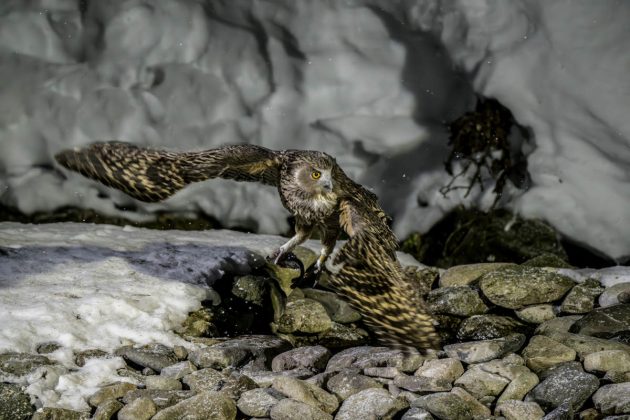
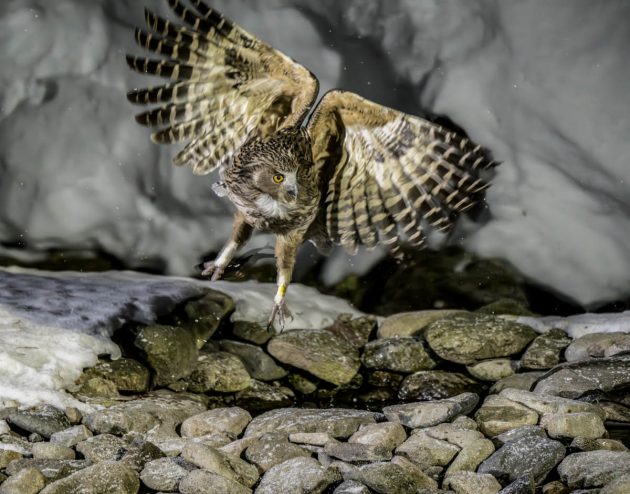
As ordinary, habitat destruction is the key situation endangering this species. This has different penalties than simply reducing the inhabitants – habitat that has all the necessities wanted by the owl (outdated forest for nest constructing, rivers with fish that don’t freeze within the winter) is now so uncommon and fragmented that the genetic change between the remaining very native populations can also be very restricted (consider incest however with out the yuck issue).
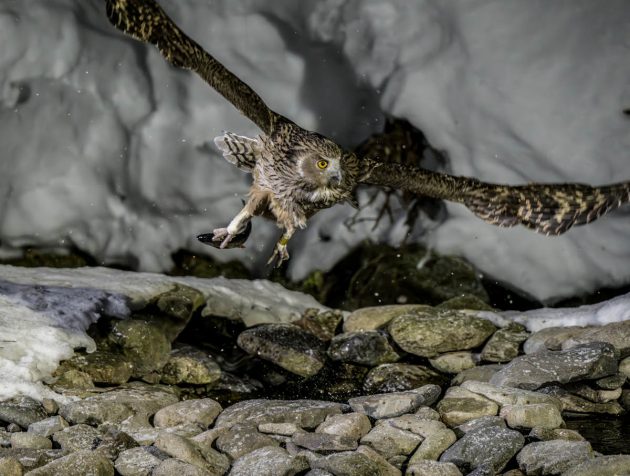
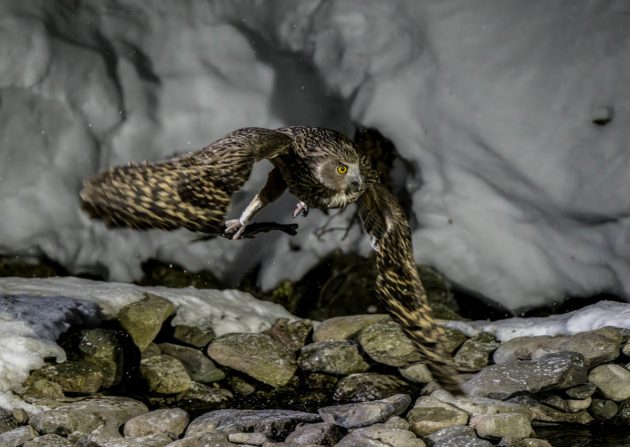
Thomas Blakiston (1832 – 1891) was an English explorer and naturalist, Wikipedia says – although I’m nonetheless not fairly certain whether or not the phrase naturalist has any that means in any respect. Blakiston explored components of Canada and Japan (together with Hokkaido) however ultimately moved to the USA, considering that it will be hotter there, however then dying of pneumonia in San Diego. How ironic.
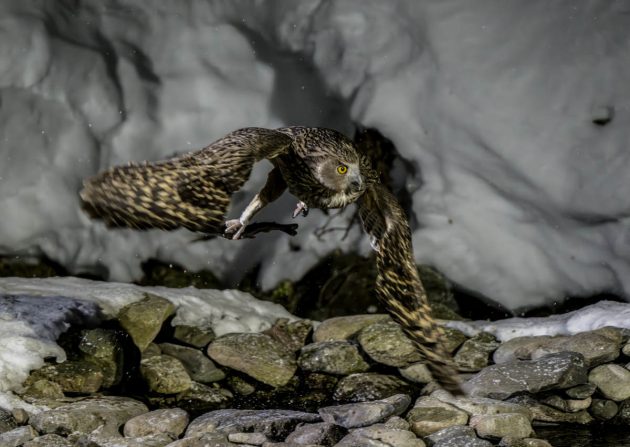
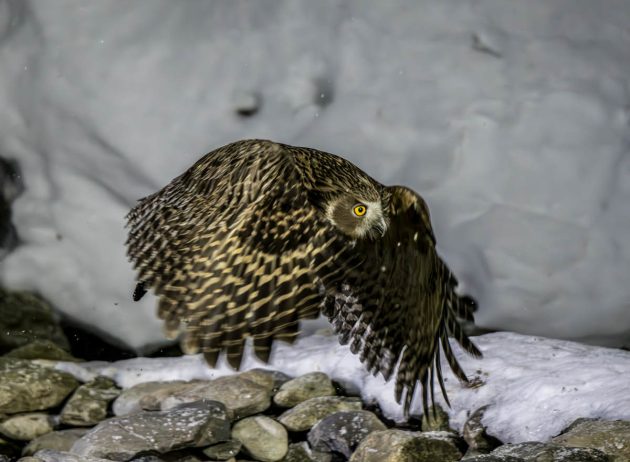
Later within the guide talked about in the beginning of this put up, there may be one other paragraph on music: “As we drove to Terney within the whiteout situations of a blizzard, listening to the Carpenters lament misplaced love at ear-bleeding quantity, I requested Katkov if he had any songs about wolves.”
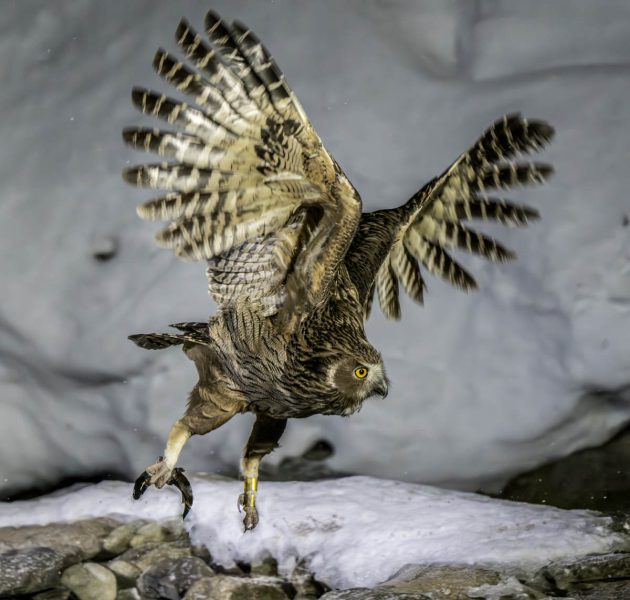
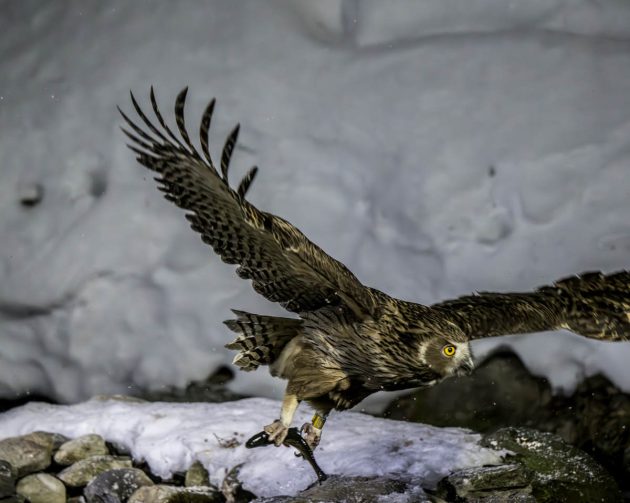
[ad_2]